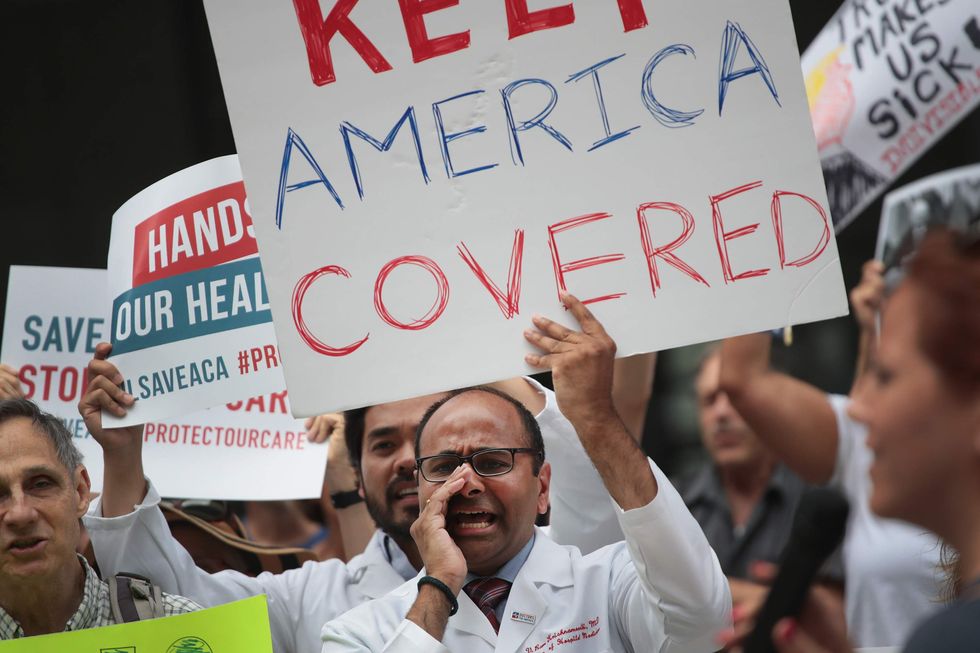
Premium increases are putting pressure on states and lawmakers to make changes to the Affordable Care Act. (Scott Olson/Getty Images)

Congress failed to repeal and replace the Affordable Care Act, better known as Obamacare, and some states are quite literally paying the price for that with drastic premium increases.
Now, insurance officials are calling on Congress to do something about these increases, even if action taken is less drastic than a full replacement of Obamacare. The timing of this particular request is not ideal for anyone involved, however, considering how many other major issues Congress is dealing with.
Here's the problem: insurance companies have to submit 2018 policy rates by Sept. 20 for publication on HealthCare.gov by Sept. 27. Which means any congressional action to ease premiums needs to happen over the next few weeks.
Insurance companies are in the process of finalizing 2018 premiums, and insurance commissioners from Washington, Alaska, Oklahoma and Tennessee testified before a Senate committee about how Obamacare is impacting their states' insurance markets.
Lori Wing-Heir, the director of Alaska's Division of Insurance, said premiums have increased 203% since 2013, which means someone paying $344 per month in 2013 is paying $1,041 per month in 2017.
John Doak, Oklahoma's insurance commissioner, said state premiums have risen 130% since 2013, and that Oklahoma's individual insurance market is facing a potential collapse. The state is now down to only one carrier option, down from five carriers just three years ago.
“It is time for serious leaders to make serious decisions to help out the people of every state as we move into 2018," Doak said.
Tennessee is facing premium increases of 21 to 42% in 2018 while, like Oklahoma, dealing with having only one coverage option.
“Our consumers have seen premium prices skyrocket while their choices dropped substantially," said Julie McPeak, commissioner of the Tennessee Department of Commerce and Insurance. "The current Affordable Care Act trajectory is not sustainable."
On the flip side, officials from Pennsylvania and Washington testified that Obamacare was working for their states, citing a decrease in uninsured people. Still, those states expect to see premium increases of 20 to 23 percent in 2018.
Studies have shown that Obamacare was the cause of premium increases dating back to 2013, and uncertainty surrounding the health care law since President Donald Trump took office has caused additional spikes.
Besides getting rid of Obamacare altogether, another option for lowering premiums is to make "cost-sharing" payments to insurance providers. These federal subsidies have been used in the past under Obamacare to lower deductibles for lower-income consumers, and are somewhat controversial.
The Senate committee plans to hold another hearing this week and two more next week to address this issue, with the goal of finding some relief for states whose insurance markets are suffering and the consumers who are paying the price.
Aaron Colen
Aaron is a former staff writer for TheBlaze. He resides in Denton, Texas, and is a graduate of the University of Oklahoma where he earned his Bachelor of Arts in journalism and a Master of Education in adult and higher education.